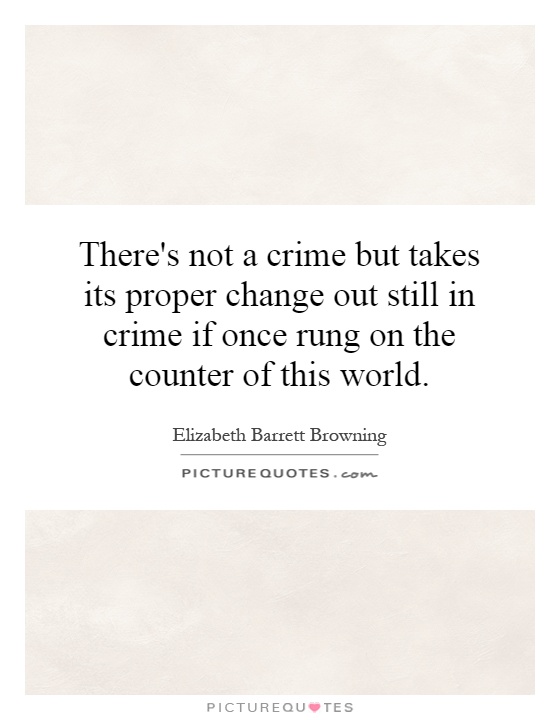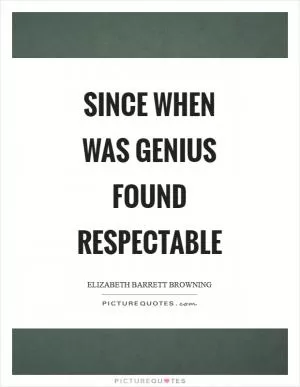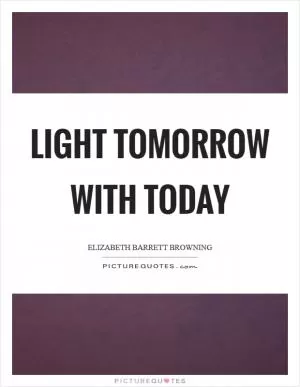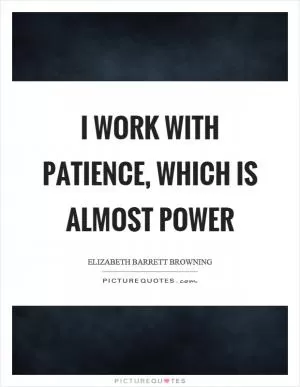There's not a crime but takes its proper change out still in crime if once rung on the counter of this world

There's not a crime but takes its proper change out still in crime if once rung on the counter of this world
Elizabeth Barrett Browning, a renowned poet of the Victorian era, often explored themes of love, justice, and morality in her works. In the quote, “There's not a crime but takes its proper change out still in crime if once rung on the counter of this world,” Browning delves into the idea that every action, especially criminal ones, has consequences that reverberate throughout society.Browning suggests that the repercussions of committing a crime are not limited to the immediate consequences faced by the perpetrator. Instead, she argues that the effects of a crime extend beyond the individual act itself, impacting the fabric of society as a whole. This idea aligns with Browning’s belief in the interconnectedness of all human beings and the notion that every action, no matter how small, has a ripple effect on the world around us.
Furthermore, Browning’s use of the metaphor of a “counter” in this quote is particularly striking. The image of a counter suggests a place where transactions take place, where debts are settled and balances are maintained. By likening the consequences of a crime to a transaction on a counter, Browning emphasizes the idea that justice is a fundamental principle of the universe, and that every crime committed must be “paid for” in some way.
In the context of Browning’s own life, this quote takes on added significance. As a woman living in a patriarchal society, Browning faced numerous challenges and injustices throughout her life. Her own struggles with illness, loss, and societal expectations undoubtedly influenced her views on justice and morality. Through her poetry, Browning sought to shed light on the injustices of her time and advocate for a more compassionate and equitable society.












 Friendship Quotes
Friendship Quotes Love Quotes
Love Quotes Life Quotes
Life Quotes Funny Quotes
Funny Quotes Motivational Quotes
Motivational Quotes Inspirational Quotes
Inspirational Quotes